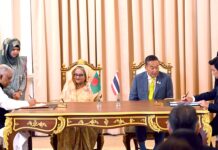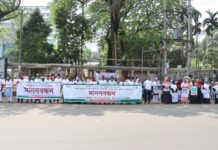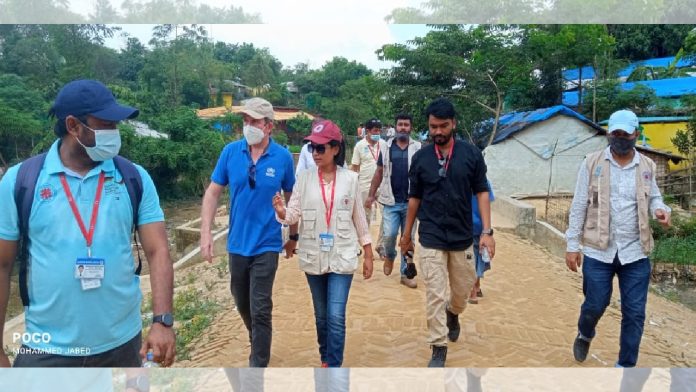
Sahidul Islam Nirob, Tuesday, 8 March 2022:
Engineer Sanzida Akhter, a super confident woman, has set an example of breaking social taboo by working as a manager of Shelter and Site Improvement under the Emergency Response Program of Caritas Bangladesh for the Forcibly Displaced Myanmar Nationals (FDMNs).
“It was not easy in the beginning, since many at workplace and surroundings could not accept me leading the shelter team, and they didn’t really accept me so easy,” said Sanzida Akhter.
Hailing from Bogura, Engineer Sanzida steeped into the Rohingya Camp on 1 September 2018 to build shelters for Rohingya people under ERP of Caritas Bangladesh.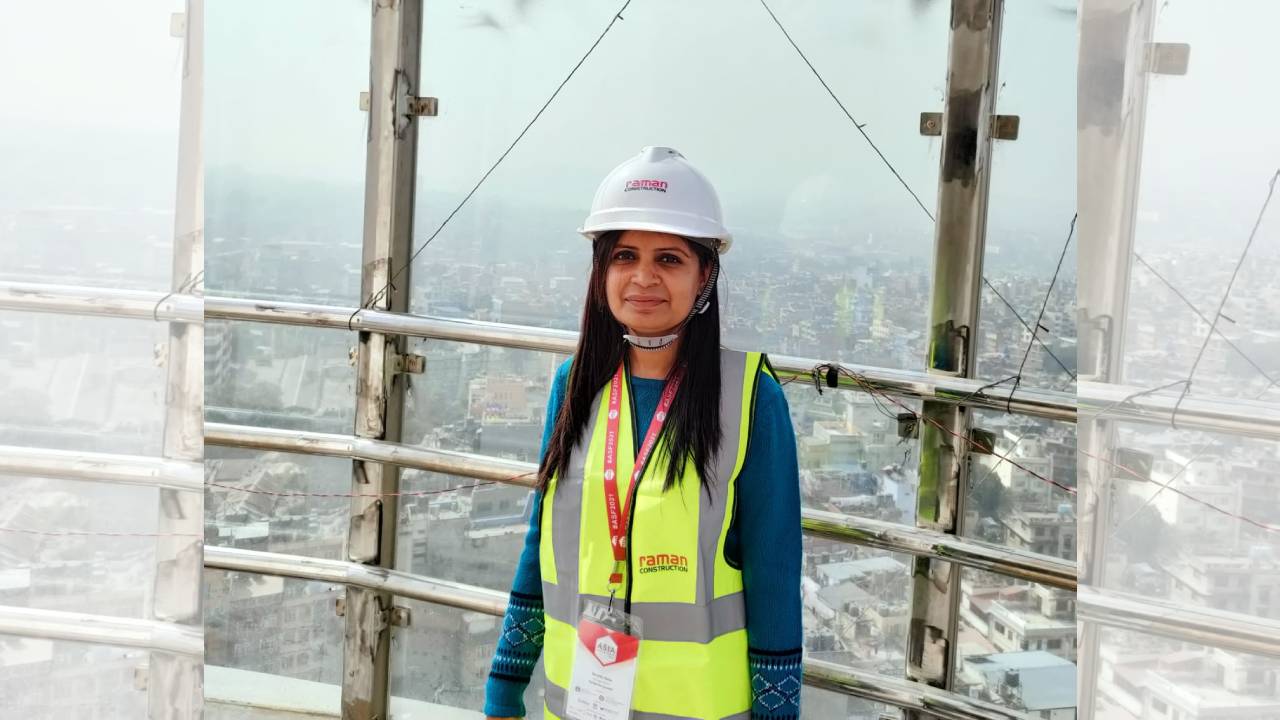
Confident Sanzida passed her SSC and HSC from Bogura Cantonment Public School & College and later got admitted to University of Asia Pacific in Dhaka from where she completed her graduation in Civil Engineering.
After completing study in Civil Engineering, Sanzida got admitted to Institute of Business Administration (IBA) at Rajshahi University and got EMBA degree from there.
During studying at Rajshahi University, Sanzida also joined as Assistant Engineer at Local Government Engineering Department (LGED) and worked till 2018.
“It’s really tough to be established and get on the right track in this male-dominated society,” Sanzida said adding that “I went through the same struggle in my professional arena but have overcome those taboos and rejection, ignorance from colleagues in different time in my professional career.”
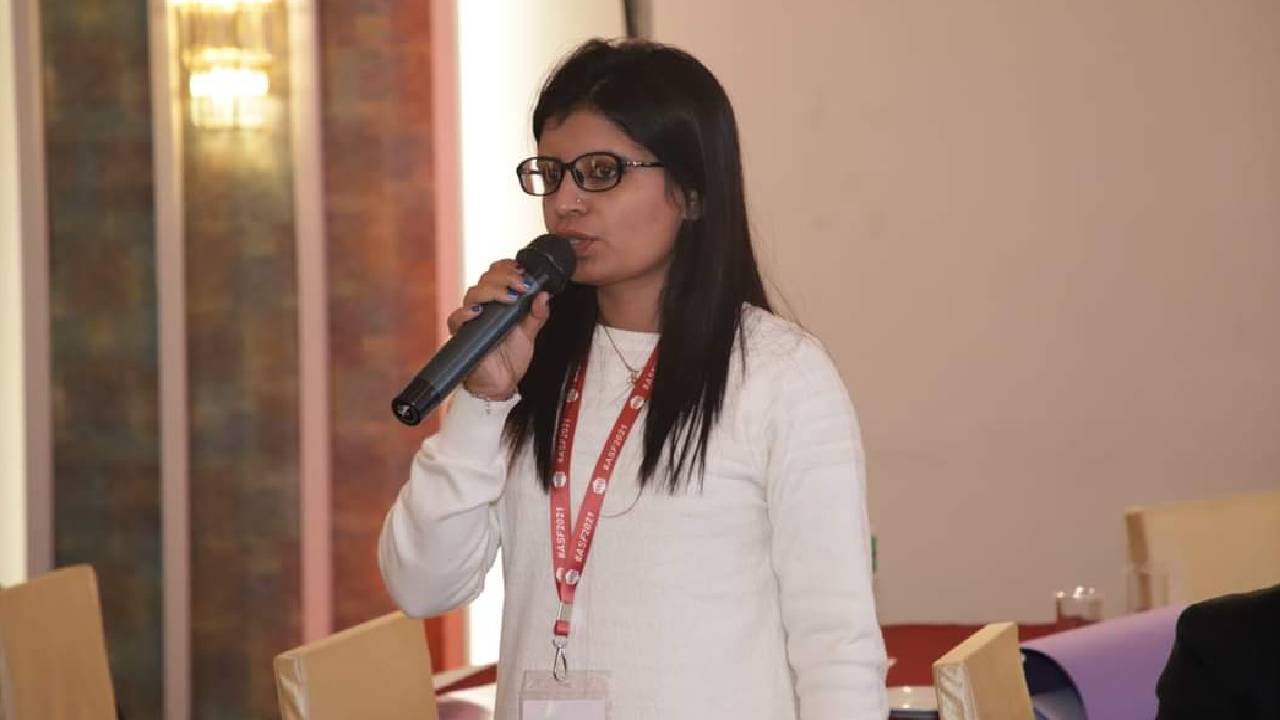
Sanzida Akhter has been holding a post of Convener of Safe Guarding Committee at Emergency Response Program (ERP) of Caritas Bangladesh’s Cox’s Bazar office.
She leads the Shelter and Site Improvement Team consists of over 50 male and 5 female staff. A couple of male site engineers also work under her supervision.
Asked about the female status in Cox’s Bazar Rohingya Response, Sanzida disclosed that there are about four female employees including herself in different NGOs and INGOs in Cox’s Bazar working in Shelter Sector.
However, there are many women working in protection sector, she added.
Culturally in Bangladesh, making house is thought to be a work of male, but Sanzida is building houses for Rohingya people in Caritas Bangladesh’s working areas in Rohingya camp.
The ERP of Caritas Bangladesh has been celebrating the International Women’s Day in Cox’s Bazar in a befitting manner aiming to establish gender equality towards sustainable future.
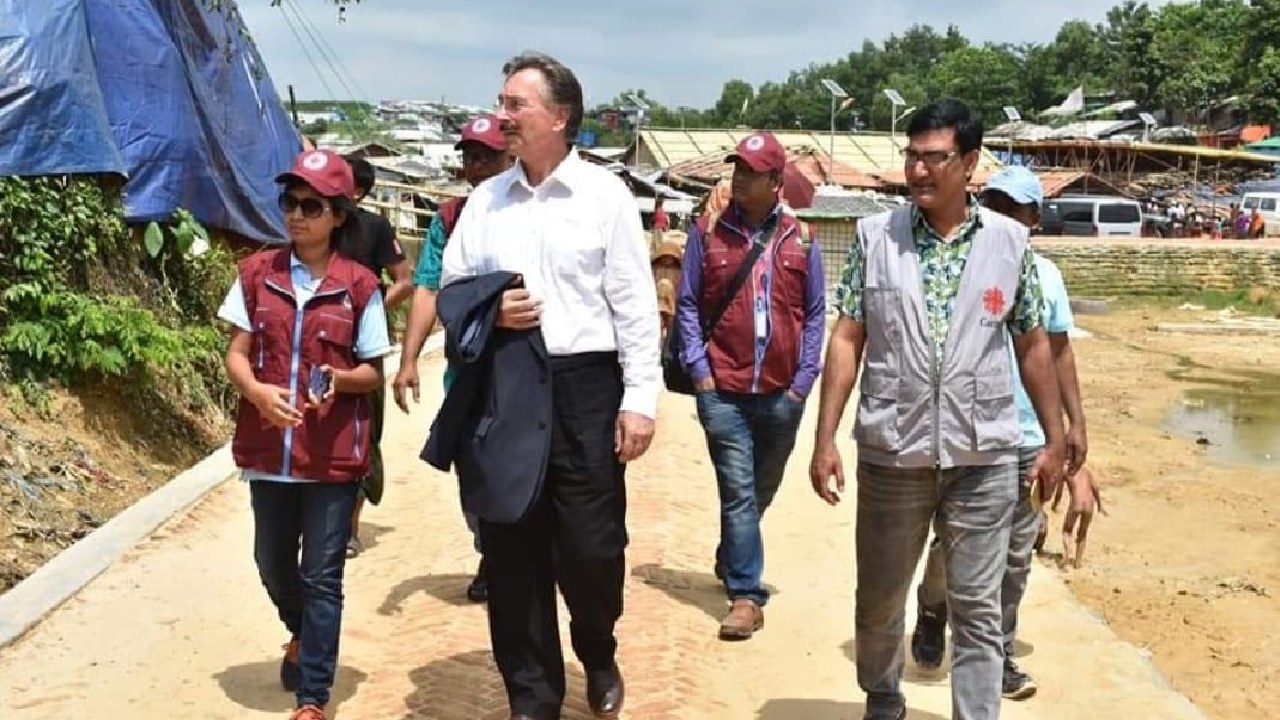
This year, the world is celebrating the day with the theme, “Gender equality today for a sustainable tomorrow”.
Thanking Caritas Bangladesh, Sanzida stated that this organization has an environment of raising voice regardless gender, race, religion and this organization is totally a great place for both men and women.
The organization has ensured the opportunity of whistleblowing against any gender-based violence here at Caritas Bangladesh, she added.
“I salute the field-level female staff who work in harder environment indeed and struggling more than I do here,” Sanzida said adding that celebrating International Women’s Day once in a year is not enough at all but this important to keep in mind that women are equal.
Pointing the apparent backwardness of Bangladesh’s society, Sanzida Akhter said “the day, parents will happily accept and greet a new-born girl child, will be truly believable day that women are equal in our society.”
Sanzida mentioned the name of two other successful female colleagues working in Shelter sector in Rohingya response in Cox’s Bazar. Urmi Das, Construction Manager, IFRC and Syeda Rubaiya Hossain, Sr. Programme Assistant -pipeline & Partner Liaison, Shelter/NFI unit, IOM are two of those bright women working at INGOs.
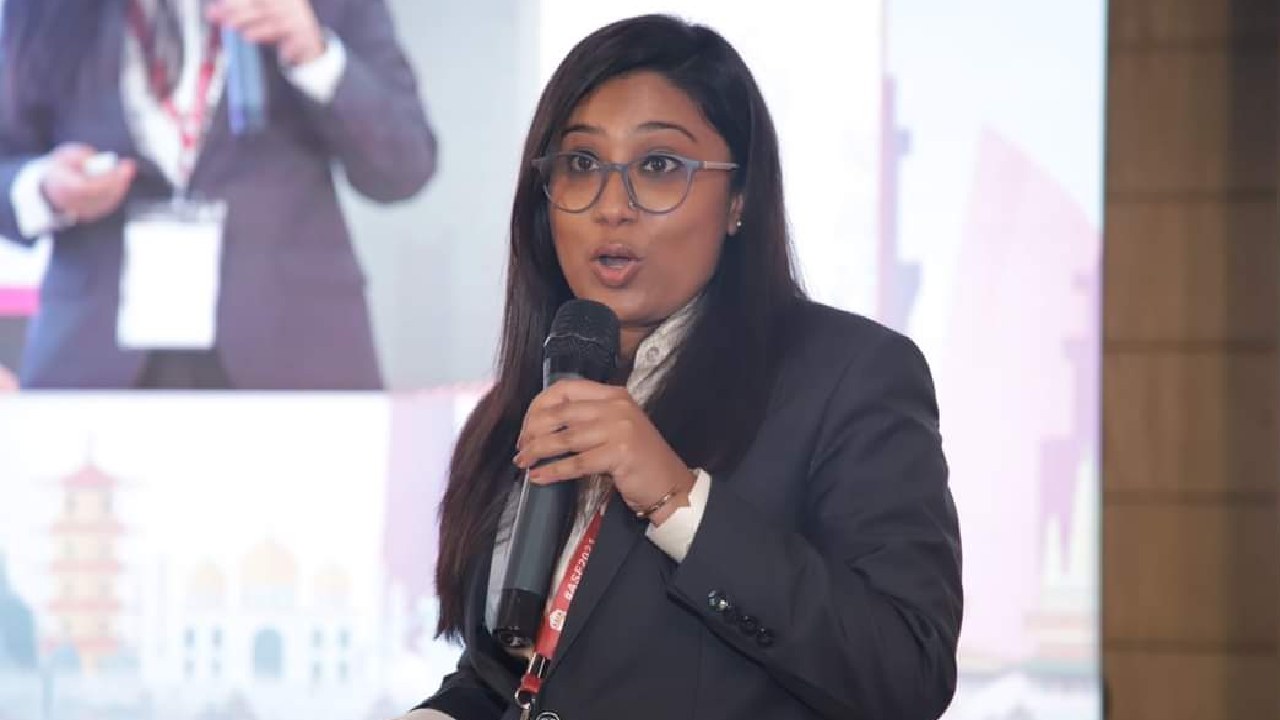
Urmi Das and Syeda Rubaiya Hossain are also working in leading positions in Shelter sector at Rohingya camp, Sanzida said.
The International Women’s Day (IWD) is celebrated on March 8 every year. It is a focal point in the movement for women’s rights. After the Socialist Party of America organized a Women’s Day on February 28, 1909 in New York, the 1910 International Socialist Woman’s Conference suggested a Women’s Day be held annually.
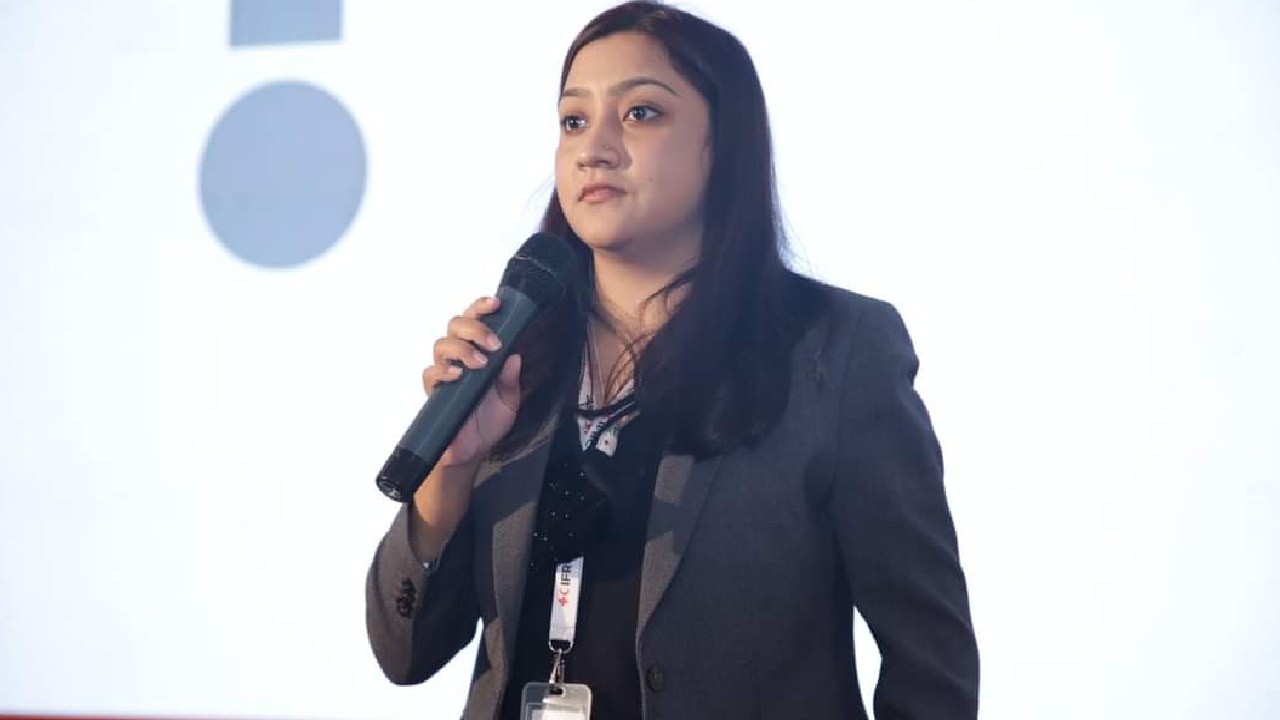
After women gained suffrage in Soviet Russia in 1917, March 8 became a national holiday there. The day was then predominantly celebrated by the socialist movement and communist countries until it was adopted in 1975 by the United Nations.
The year 2022 is pivotal for achieving gender equality in the context of climate change, and environmental and disaster risk reduction, which are some of the greatest global challenges of the twenty-first century. Without gender equality today, a sustainable future, and an equal future, remains beyond our reach.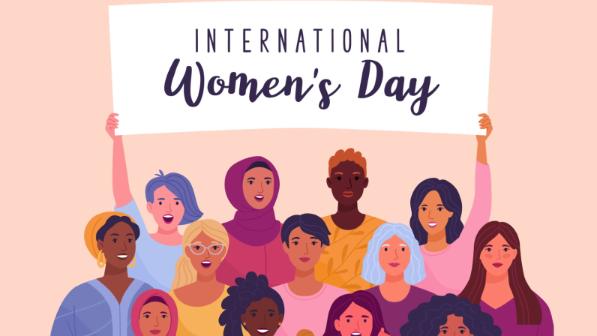
This year’s IWD observance is in recognition and celebration of the women and girls who are leading the charge on climate change adaptation and response, and to honor their leadership and contribution towards a sustainable future.


